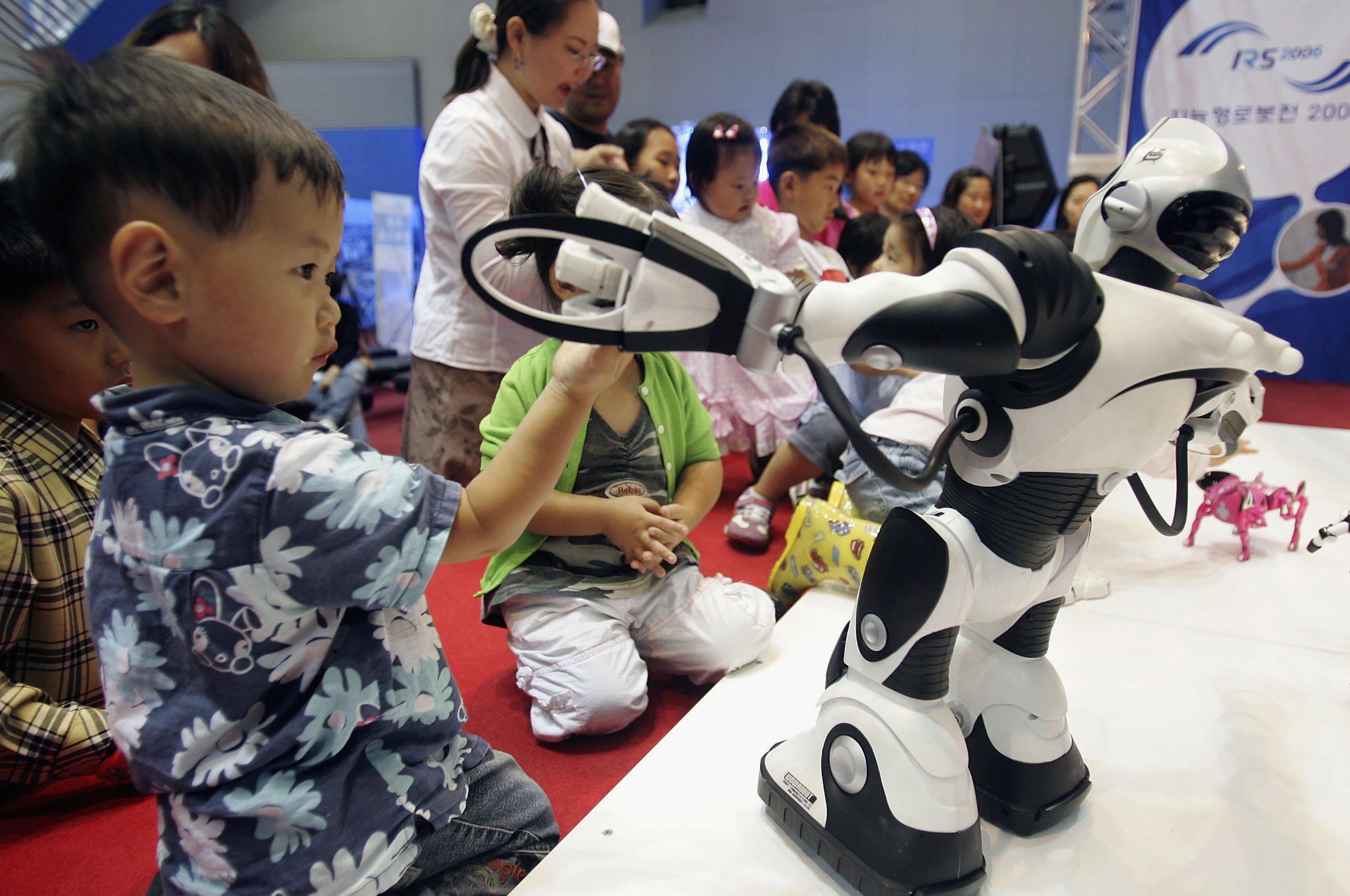Spike Jonze’s new film, Her, contemplates finding romantic love in artificial intelligence. Theodore, a lonely writer played by Joaquin Phoenix, purchases a new operating system that helps him interface with his electronics and/or life. It’s a new model, the “world’s first artificially intelligent operating system,” and is designed to meet his every need. The system, named Samantha and voiced by Scarlett Johansson, appears to fall in love with Phoenix’s character, and—because this looks more like a romantic comedy movie about technology rather than a horror movie about technology—Theodore falls in love with Her, too. (In a horror movie about technology, Theodore would not reciprocate Samantha’s love, causing the system to stalk him, sort of like Single White iMac.)
The movie invites us to consider the intimacy of our relationships with devices. How much emotional trust do we place in them? AI can’t currently engage in the intimate conversations that Theodore and Samantha have. But we’ve started to see smart machines that can help look after older patients and babysit kids. Will we soon rely on artificially intelligent robots to nanny our kids while we go to work, run errands, and have a date night?
This could create some confusion over who has custody of the children. Although teenagers would hate to think of themselves this way, the law generally assumes that minors are always in someone’s custody. They wake up in their parents’ custody, go to school and are in the custody of the school, go to an afterschool program and are in the custody of the adults that run the program, get picked up by their grandparents and are in their custody, and finally return home to their parents’ custody again. At each stop during the day, the custodial adults are obligated to exercise reasonable care to ensure that the child neither hurts anyone nor damages any property.
As any parent can tell you, “reasonable care” does not ensure that kids won’t whack another child or smash a window. But there is a difference between the little girl who breaks her arm because she fell off her bike while the nanny watched from 10 feet away and the little girl who runs into traffic because the nanny negligently ignored her for an hour while texting. A custodial adult who is negligent in watching a child will be found liable for any damages the child causes because of that negligence.
A robo-babysitter potentially challenges this principle. Parents leave little Timmy with C-3PO. While under the robot’s care, Timmy sneaks into the neighbors’ car and crashes it into their front porch. Are the parents liable because C-3PO couldn’t walk fast enough to stop little Timmy? Is C-3PO or C-3PO’s manufacturer? Unless legislation is introduced that affirmatively governs this scenario—and I think that will be a good idea eventually—the identity of the legally responsible party will depend on a complex array of factors, including:
- Design and alleged abilities of the robo-babysitter;
- Reputation and reliability of the robo-babysitter;
- Age of the child;
- Child’s developmental level; and
- Duration of the responsible adult’s absence.
The parent who runs out to get milk while leaving a relatively mature 10-year-old with a well-regarded Samantha-type system has acted more responsibly than the parent who leaves for the weekend while leaving their newborn with an untested prototype of a Samantha-type system.
In situations in which parents have acted reasonably in leaving their kids with a robot, liability may rest with the manufacturer, particularly if there is flaw in the design or production. However, as with two autonomous cars that operate properly but still crash into each other because of the circumstances in the road, it’s possible for a robo-babysitter to behave exactly as designed and still permit children to hurt other people or damage property. If there is legislation in the future, the writers might want to consider requiring minimum insurance coverage for autonomous devices intended for childcare in order to limit confusion over liability.
Promoting the development of artificial intelligence devices and programs that work with kids should be a goal. Regardless of their babysitting skillsets, robots can be a tremendous asset in classrooms. For example, Maja Matarić, a computer science professor at the University of Southern California, has studied how interacting with robots is beneficial to autistic children. “Robots are very helpful to enhance the concentration capability of children in class,” notes Bum-Jae You, the head of the Cognitive Robotics Center at the Korea Institute of Science and Technology, where researchers are exploring the placement of robot teaching assistants in South Korean classrooms.
You also says, “Children feel the robot is their friend.” So it’s possible that Her isn’t very far off the mark.
